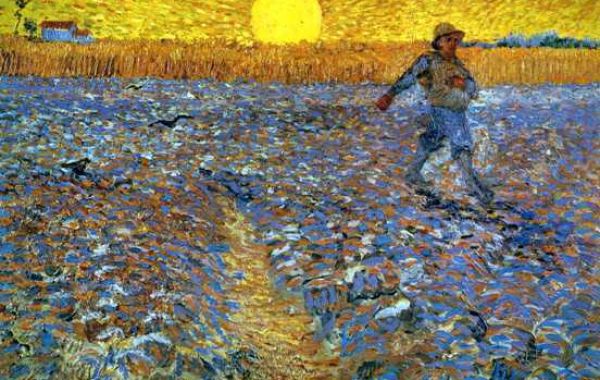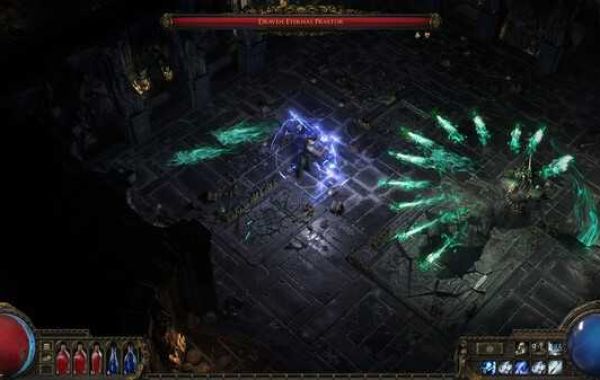Introduction: Several gardeners in our church. Gardeners speak the same language when we speak of gardens. Let me give you an example, If I asked a gardiner, like Brother Harry if he was having any problems with “squash bugs” this year. He would know exactly what I was talking about and would probably fill me in for several minutes on just how much of a problem squash bugs were that year. He would also probably know that squash bugs get their name for two reasons, first because they eat up your squash plants and secondly because the best way to deal with a squash but is to get to bricks and squash them between them. They are that tough and you want revenge. Today we will be looking at Matthew 13 and the parable of the Sower. Jesus used parables in the way gardeners talk about gardening or mechanics talk about cars, or hunters talk about guns. He was speaking the truth in the same language as those who were listening to Him. When he talked of sowing the seed they didn’t need any explanations they knew exactly what He was talking about.
Background
So, today we will listen as the Lord tells this, one of His most famous parables in Matthew 13. The same parable is also found in Mark 4 and Luke 8. This teaching takes place in the 2nd year of Jesus public ministry. The ministry of Christ while He was on the earth can be seen in three stages, that roughly correspond with the years he preached and ministered. The first year is the year of obscurity or preparation, the 2nd the year of popularity and the 3rd the year of opposition. The Parable of the Sower takes place during the 2nd year at the beginning of the year of popularity. Jesus would have been about 32 years old as he preached this message and his disciples probably younger.
The parable of the Sower is part of a large group of parables taught that day and Jesus taught them just after the scribes and Pharisees had accused Jesus of doing miracles by the power of Satan in Matthew 12:22-24 Then was brought unto him one possessed with a devil, blind, and dumb: and he healed him, insomuch that the blind and dumb both spake and saw. 23 And all the people were amazed, and said, Is not this the son of David? 24 But when the Pharisees heard it, they said, This fellow doth not cast out devils, but by Beelzebub the prince of the devils.
Then later that same day perhaps they asked Him for a sign in Matthew 12:38-39 Then certain of the scribes and of the Pharisees answered, saying, Master, we would see a sign from thee. 39 But he answered and said unto them, An evil and adulterous generation seeketh after a sign; and there shall no sign be given to it, but the sign of the prophet Jonas:
Jesus condemns them for blasphemy against the Holy Spirit, which cannot be forgiven and then he also condemns those seeking a sign, telling them they are evil and adulterous generation. Now blasphemy against the Holy Spirit isn’t possible today, the so called unpardonable sin. It’s not possible because Jesus is not on the earth doing the miracles that only He could do, and the Pharisees are not here seeing those miracles, know that they are being done by the power of the Spirit of God and then contributing them to Satan. That is unforgiveable, but its not possible today as those people and events are not taking place today. The second condemnation Jesus pronounced that day, is not only possible it is even more widespread today than it was back in Jesus time upon the earth. We walk by faith not by sight, God’s word says. If you seek after signs and miracles to believe, then Jesus says that is evil and adulterous. Instead of giving them a sign, on the day we are talking about, Jesus gave them parables. Isn’t that interesting.
Matthew 13:3 And he spake many things unto them in parables…
Of all the ways and styles of teaching in the Bible, Jesus used parables more than any other manner of speech to teach truth to his disciple and to separate the believers from the pretenders.
When the disciples asked Jesus why he spoke to the crowds in parables, he told them in, Matthew 13:10-17 Because it is given unto you to know the mysteries of the kingdom of heaven, but to them it is not given. For whosoever hath, to him shall be given, and he shall have more abundance: but whosoever hath not, from him shall be taken away even that he hath. Therefore speak I to them in parables: because they seeing see not; and hearing they hear not, neither do they understand.
How did a parable separate disciples and seekers from pretenders and hypocrites? It came down to this simple act, if you heard a parable and did not understand it, as most people then and now would not, then a true disciple would go to the Lord and seek understanding. Those who were only pretenders would not take the time to understand or they would walk away. Seeking the Lord and His truth is what makes you a disciple. In the same way that simply hearing a sermon does not make you a child of God.
Disciples spend as much time with the Lord as they can and they are always seeking answers from and about God’s word. Pretenders and pew fillers just go through the motions.
The parable of the Sower or the parable of the Soil
Matthew 13:3 And he spake many things unto them in parables, saying, Behold, a sower went forth to sow; 4 And when he sowed, some seeds fell by the way side, and the fowls came and devoured them up: 5 Some fell upon stony places, where they had not much earth: and forthwith they sprung up, because they had no deepness of earth: 6 And when the sun was up, they were scorched; and because they had no root, they withered away. 7 And some fell among thorns; and the thorns sprung up, and choked them: 8 But other fell into good ground, and brought forth fruit, some an hundredfold, some sixtyfold, some thirtyfold. 9 Who hath ears to hear, let him hear.








